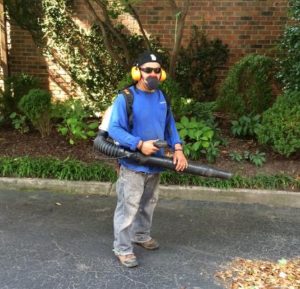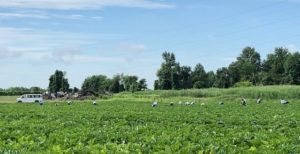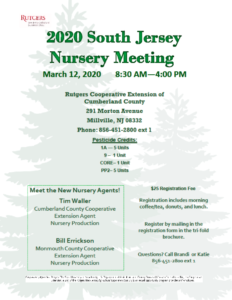NJ Governor Murphy’s Executive Order 122 pertaining to non-essential construction and landscaping as of Friday, April 10, 2020:
• Maintenance including cutting grass, weed wacking and leaf blowing (including cleanups) Permitted
• Install patios, walkways, pools, etc – NOT PERMITTED, unless project has begun before Friday 4/10 at 8:00 pm or there is an emergency fix to the front walkway
• Install plantings, including flowers and shrubs – Permitted
• Install irrigation systems – NOT PERMITTED, unless project has begun before Friday 4/10 at 8:00 pm. System startups and emergency repairs are permitted.
• Perform pruning and trimming – Permitted
• Provide weed and pest control services – Permitted
• OK Put down mulch or top dress – Permitted
• Install sod or seed lawns – Permitted (however, note that irrigation systems cannot be installed, so this would be at the discretion of the company if they can properly irrigate).
In addition, there is a limit of 5 crew members on site at all times. Masks (or some type of facial covering) and gloves must be worn and p rovided by company to employees. Start times and lunch times should be staggered to avoid employees having close contact. Previous social distancing rules still apply. Employees/customers must keep six feet apart at all times except when workers must do a task together.
rovided by company to employees. Start times and lunch times should be staggered to avoid employees having close contact. Previous social distancing rules still apply. Employees/customers must keep six feet apart at all times except when workers must do a task together.


